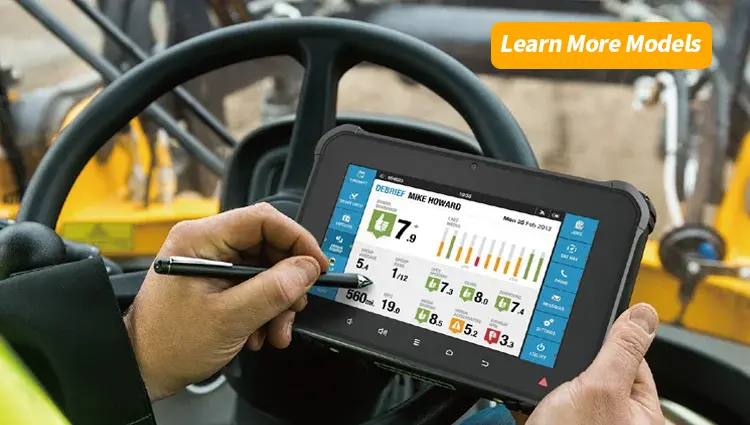Beyond Boundaries: The Impact of Mobile Data Terminals (MDTs) on Real-Time Connectivity
Mobile Data Terminals (MDTs) have revolutionized communication and information access across various industries. These portable devices, often integrated into vehicles or carried by field personnel, serve as vital hubs for data transmission, retrieval, and real-time connectivity. The versatility and functionality of MDTs make them indispensable tools in modern-day operations, seamlessly bridging the gap between remote locations and centralized databases.
The inception of MDTs marked a pivotal shift in how information is exchanged in fields such as transportation, law enforcement, emergency services, and logistics. These terminals facilitate swift and efficient communication by enabling instant access to critical data, including maps, dispatch instructions, vehicle diagnostics, and more.
In the realm of law enforcement, MDTs empower officers with on-the-go access to databases, enabling quick license plate checks, suspect identification, and incident reporting. This real-time data availability significantly enhances situational awareness and aids in making informed decisions promptly.
The transportation sector benefits immensely from MDTs, where they serve as navigational aids, providing drivers with optimized routes, traffic updates, and delivery instructions. Furthermore, in emergency services, these terminals enable rapid coordination between dispatch centers and responders, ensuring timely and coordinated responses to incidents.
The robustness and reliability of MDTs are critical in demanding environments. Their rugged design ensures durability, withstanding the rigors of daily use and adverse conditions, including extreme temperatures, vibrations, and moisture. Such resilience is fundamental, especially in industries like construction, where these devices endure harsh terrains and constant movement.
The evolution of MDTs continues to redefine connectivity and accessibility. Modern iterations integrate advanced features like GPS tracking, biometric authentication, and enhanced encryption for secure data transmission. Moreover, the integration of AI and machine learning capabilities enhances predictive analytics and decision-making processes, further amplifying the efficiency of these devices.
Challenges persist within the realm of MDTs, primarily concerning data security and interoperability. Ensuring encrypted communications and safeguarding sensitive information against potential breaches remain crucial focal points. Additionally, achieving seamless integration between different systems and platforms is vital for enhancing cross-functional operability.
Looking ahead, the trajectory of MDTs promises exciting advancements. Augmented reality (AR) integration, 5G connectivity, and improved energy efficiency are poised to redefine the capabilities of these terminals. The convergence of IoT (Internet of Things) technologies will expand their functionalities, enabling comprehensive monitoring and control systems across various domains.
In conclusion, Mobile Data Terminals stand as the linchpin of modern connectivity, offering a lifeline of data and communication in diverse industries. Their evolution continues to push boundaries, transforming how information is accessed, processed, and utilized in mission-critical operations. As these devices evolve, their adaptability and resilience will continue to shape the landscape of industries reliant on real-time data and connectivity.








